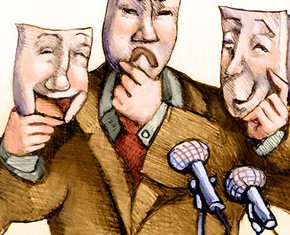The views expressed in our content reflect individual perspectives and do not represent the authoritative views of the Baha'i Faith.
Many of us have had personal experiences with religion that have left us scarred, troubled, and asking ourselves why do I need any religion?
I remember when I first learned about how Christianity was cynically used by some churches to not only justify, but actually support, the institution of chattel slavery. At that time, someone explained to me how appealing and calming the promise of eternal life could seem to an entire population of people being brutalized by slavery. The concept could be used to subdue slaves and their children, inure them to a life of suffering, explain away their hardship, and even to excuse the brutal practice of slavery.
In the same way, a small percentage of people have used the Qur’an to excuse deeply terrifying acts of violence. Claiming to use its religious text for violence stigmatizes the spiritual practice of Islam in the eyes of those who are ignorant to the messages of diversity and peace that emerge from this same holy text.
Even in less severe or overt forms, many people experience how religion can become a point of contention within families and communities of diverse realities. Some have used religious guidance to shame or hurt queer people, and others have used their interpretation of religious texts to claim cultural dominance in different forms.
With all this mess, it can be difficult to focus on the ways religion helps society. What is its intended role? Do we even know anymore? The Baha’i writings clearly make the case that:
The purpose of religion as revealed from the heaven of God’s holy Will is to establish unity and concord amongst the peoples of the world; make it not the cause of dissension and strife. – Baha’u’llah, Tablets of Baha’u’llah, p. 129.
If we accept this as the ultimate purpose of religion, it becomes clear that many things which claim to be religion contradict the broader purpose of religion. Rather than establishing unity and concord, they do the opposite. Of course, human beings are imperfect, and many of our ways of contorting or perverting religion come from an inability to separate ourselves from the unkind and disillusioned ways of past generations.
The Baha’i teachings say:
… religion must be in conformity with science and reason, so that it may influence the hearts of men. The foundation must be solid and must not consist of imitations. – Abdu’l-Baha, Selections from the Writings of Abdu’l-Baha, p. 298.
So how can we break the cycle of toxic religious cultures? We can try to think systematically about how to further improve the way we implement the teachings provided in holy texts. Rather than just inheriting prejudice, we can organize our efforts to try and reasonably transform our world with the power of these texts. The Baha’i writings warn against the harmful effects of misguided religion:
Baha’u’llah says that religion must be conducive to love and unity. If it proves to be the source of hatred and enmity, its absence is preferable; for the will and law of God is love, and love is the bond between human hearts. Religion is the light of the world. If it is made the cause of darkness through human misunderstanding and ignorance, it would be better to do without it. – Abdu’l-Baha, The Promulgation of Universal Peace, p. 287.
We have the power to reclaim the use of the knowledge, guidance, and spiritual relief that religion brings us. Throughout history we’ve seen people rectify complicated relationships with religion. Despite the early forcible exposure enslaved Africans had to Christianity, we still saw black Christian churches arise to become fortresses for peace and produce activists for change. Many black churches have been and are resilient forces for freedom and safety for people fleeing trauma-riddled lives. These stories generate hope. They show how religion provides people a community to organize in their efforts to do good. They show the power a group of people can have when they leverage prayer, the study of holy texts, and action.
So evaluating the impact of religion on any group of people requires rational, reasonable thinking, balancing the overall positive effects with the negative ones.
The Baha’i writings say that reason and religion should go hand in hand. We can see the beautiful fruits that come from religion when it is balanced and tested with reason:
Religion must be reasonable. If it does not square with reason, it is superstition and without foundation. It is like a mirage, which deceives man by leading him to think it is a body of water. God has endowed man with reason that he may perceive what is true. If we insist that such and such a subject is not to be reasoned out and tested according to the established logical modes of the intellect, what is the use of the reason which God has given man? – Ibid., p. 63.
In a hyper-individualistic culture, many dismiss religious community with the belief that we can be spiritual on our own. While individual spirituality is certainly important, coming together to systematically and earnestly work with a unified group to reach one common goal has much more potential than individually attempting to reach that goal.
You May Also Like
Comments

















- Jean-Yves Leloup, Compassion and Meditation